Karen Kay views the new Sustainable Development Goals through a gender lens
In 2000, the UN’s 8 Millennium Goals united the world in an effort to make disadvantaged people’s lives better. Fifteen years later, the world is in a much different place and the need for more ambitious and universal goals has now been recognized.
The 17 new Sustainable Development Goals (Global Goals) differ from the MDGs in that, firstly, they are universal; the focus is on both the rich and poor nations of this world. Secondly, both business and the private sector are expected to fully participate in making them happen. These goals have the power to change the way we live, how we structure our economies, the way we produce and the way we consume - and as investors we can and should play our part in helping make them happen.
It’s also significant to note a focus on women and girls present in many of the goals - recognition that the world can’t play with half a team. Many of the underlying targets specifically recognise women’s equality and empowerment as both the objective and as part of the solution. For example, the commitment to bring an additional 100 million women into the workforce by 2025.
Women are the ultimate accelerators of economies. I recently read the statistic by McKinsey that said if women in every country were to play an identical role to men in markets, as much as US$28 trillion would be added to the global economy by 2025. That’s a big figure. But there’s a long way to go because women continue to earn less, have fewer assets, bear the burden of unpaid work and care and be largely concentrated in vulnerable and low-paying activities. Women spend more than twice as much time on unpaid care and domestic work as men and women on average are paid 24% less than men globally for the same work. Women’s employment in developing regions is largely informal and unprotected.
As investors we need to recognise the challenges above and consider them when making our investment decisions. Are we helping to alleviate any of the hurdles?
SDG 5 tackles the challenge of ‘Achieving gender equality and empowerment of women and girls’ head on. It includes nine core targets, covering social justice issues (discrimination, violence, child and forced marriage, FGM and reproductive health to name a few), as well as economic empowerment issues including equal opportunities for leadership and decision making at all levels (political, economic and public life), equal rights to economic resources, land, financial inclusion and enhancing use of enabling technology.
Most recently in Davos, Ban Ki-moon announced the first ever High-Level Panel on Women’s Economic Empowerment (backed by the UK, the World Bank and UN Women) to provide thought leadership and mobilise concrete actions aimed at closing economic gender gaps that persist. The panel will recommend how to improve economic outcomes for women, key actions that can be taken by governments, the private sector, the UN and other stakeholders, as well as policy directives needed to achieve the SDG 5 targets and indicators.
So what does this mean for investors? Simply it means that government policies will have to be altered to provide environments conducive to investing in businesses and programmes that will help get these 100 million women into the workforce. There is the potential for investor funds to be leveraged, with programmes and funding to create a healthy ecosystem in which investments can flourish.
"As investors we need to be informed and we need to work collaboratively to understand the changing landscape that will unfold over the next few years"
Women will be educated and trained to be ‘investment ready’ – this creates opportunities for investors. Country policies around this will differ, so as investors we need to be informed and we need to work collaboratively to understand the changing landscape that will unfold as governments formalise their goals and allocate domestic resources.
I look forward to working towards SDG 5 and the targets that underpin so many of the other SDGs that have women and girls as the solution. I think we’ll be surprised with what can be achieved in 15 short years.
Karen Kay is a Director of Oshun Partnership in the UK. Previously Karen worked as International Development Director for the One Foundation with a focus on Water and Sanitation, after spending over 15 years in the financial services sector. Karen sits on the Women Effect Advisory Council.
Website: www.oshunpartnership.com
Twitter: @kmkay1
Image credit: Reedz Malik







